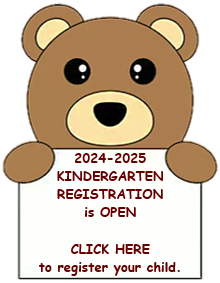Parent Information
The Connecticut Department of Education has several resources to support parents of children with special education needs.
When preparing for a Planning and Placement Team Meeting (PPT) parents can access the IEP Guide. This guide takes families through each page of the Individualized Education Plan (IEP) to better prepare them for the important discussions which take place at PPTs.
An additional resource is the Parent's Guide to Special Education. This document provides answers to several questions a family may have regarding their child's rights as well as the special education process.
Connecticut Parent Advocacy Center is an additional resource for parents to access when requiring support for their child.
If you have concerns regrading your child who is younger than three:
1. Visit the Birth to 3 website.
2. Call (800) 505-7000
If you have concerns regarding your child's development and he/she is between the ages of 3 and 5, Thomaston Public Schools will conduct screenings to determine his/her strengths and needs. Screenings take place at Black Rock School. Parents are urged to contact Kelly Dube at (860) 283-3040 Ext. 7 for a screening if concerns exist.
If a teacher has concerns with a child's school performance, he or she may request assistance from the school's intervention team. Such teams are designed to support teachers in developing strategies and suggestions for students who are experiencing difficulty in regular education. Throughout the implementation of instructional strategies and supports, student progress is monitored to determine whether the alternative strategies are successful and should continue. This process is called Response to Intervention (RTI). Family Guide to RTI
If, after a series of interventions, the team members believe a full evaluation may be necessary, they request a Planning and Placement Team (PPT) meeting with the parents to discuss the need for evaluation. This is a formal process that follows state and federal guidelines, to which parents must be invited. This referral "starts the clock" with mandated timelines.
Special Education law requires the school to meet strict timelines in evaluating a child and formulating an appropriate Individualized Education Plan (IEP). After the initial referral, the school must complete its evaluation and formulate an IEP, if appropriate, within 45 school days (excluding weekends, holidays, school vacations and time required to obtain written consent). The initial referral that begins this 45 day period can take place at any time during the school year, even if there are not 45 school days left.
To be eligible for preschool special education, disabled children must be at least three years old. Additionally, upon completion of an evaluation, it must be determined by the Planning and Placement Team (PPT) that without special education, it is unlikely that the child will be able to make satisfactory educational progress when the child attains school age.
Teachers of Special Education provide direct instructional services to many disabled children in our schools. The extent of the Special Education teacher's involvement with a disabled student will vary, depending on the student's need for specialized instruction.
All students with disabilities must participate in state and district wide assessments, with appropriate accommodations and alternative assessments when necessary and as indicated in their respective Individualized Education Plan (IEP).

